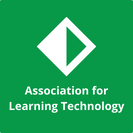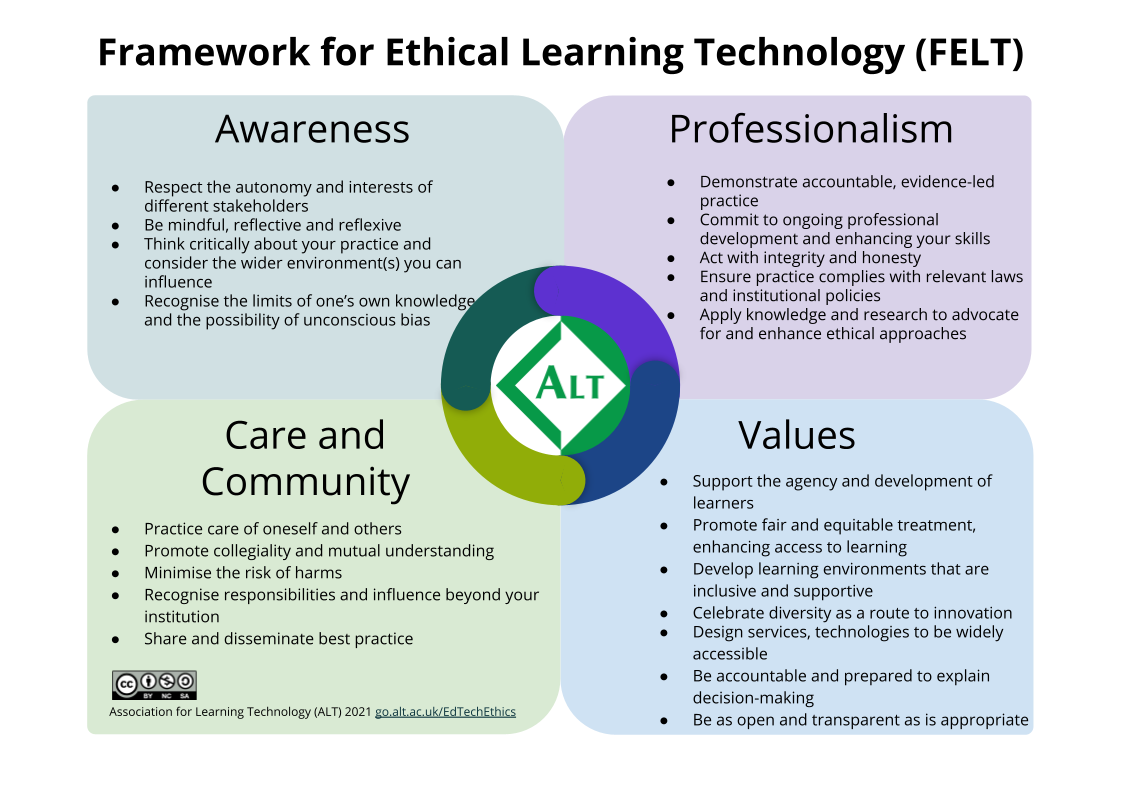ALT’s Framework for Ethical Learning Technology (FELT) is designed to support individuals, organisations and industry in the ethical use of learning technology across sectors. It forms part of ALT’s strategic aim to strengthen recognition and representation for Learning Technology professionals from all sectors. The need for such a framework has become increasingly urgent as Learning Technology has been adopted on a larger scale than ever before and as the leading professional body for Learning Technology in the UK, representing 3,500 Members, ALT is well placed to lead this effort. We define Learning Technology as the broad range of communication, information and related technologies that are used to support learning, teaching and assessment. We recognise the wider context of Learning Technology policy, theory and history as fundamental to its ethical, equitable and fair use.
Building on ALT’s professional accreditation framework, CMALT, which was expanded to include ethical considerations for professional practice and research in 2019, a working group of 120 members has helped define this framework for professional practice alongside tools and resources to help for individuals, institutions and industry.
- Contribute a case study or policy
- View FELT resources including self-assessment tools
- Find out how FELT was developed
Framework Overview
- ALT Framework for Ethical Learning Technology 2021 PDF version
- Infographic Colour Image, Black & White Image, Word Version 2021
Text version of the Framework
Framework for Ethical Learning Technology (FELT)
Awareness
- Respect the autonomy and interests of different stakeholders
- Be mindful, reflective and reflexive
- Think critically about your practice and consider the wider environment(s) you can influence
- Recognise the limits of one’s own knowledge and the possibility of unconscious bias
Professionalism
- Demonstrate accountable, evidence-led practice
- Commit to ongoing professional development and enhancing your skills
- Act with integrity and honesty
- Ensure practice complies with relevant laws and institutional policies
- Apply knowledge and research to advocate for and enhance ethical approaches
Values
- Support the agency and development of learners
- Promote fair and equitable treatment, enhancing access to learning
- Develop learning environments that are inclusive and supportive
- Celebrate diversity as a route to innovation
- Design services, technologies to be widely accessible
- Be accountable and prepared to explain decision-making
- Be as open and transparent as is appropriate
Care and Community
- Practice care of oneself and others
- Promote collegiality and mutual understanding
- Minimise the risk of harms
- Recognise responsibilities and influence beyond your institution
- Share and disseminate best practice

